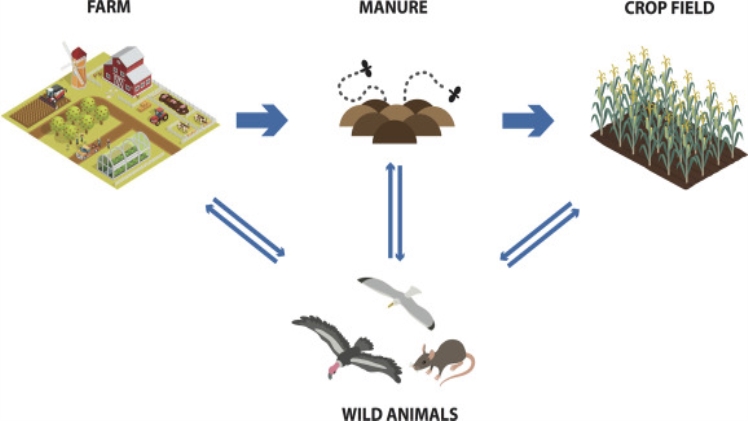Antibiotics are drugs that are used to treat bacterial infections. They work by killing the bacteria or preventing them from growing. Antibiotics are available as pills, liquids, creams, ointments, injections, and suppositories.
Causes of antibiotics in the environment
Antibiotics are a type of medicine that is used to treat bacterial infections. They work by killing the bacteria or preventing them from growing.
Waste through urine
When people take antibiotics, some of the drug is not absorbed by the body and is excreted in the urine. Wastewater treatment plants remove some of the antibiotics, but not all of them.
Drug in livestock end as manure
Also, when farmers give antibiotics to livestock, some of the drug is not metabolized and can end up in manure, which is often used as fertilizer. When it rains, the antibiotics in the manure can run off into surface water, such as lakes and streams.
Consequences of antibiotics
It Cause different Consequences in our environment
Dangerous for plants and animals
When antibiotics are used improperly, they can end up in the environment, where they can cause problems for plants and animals.
Delicate ecosystems
In particular, antibiotics can pollute water ways and damage delicate ecosystems
Antibiotic give resistant to bacteria
In addition, antibiotics can contribute to the development of antibiotic-resistant bacteria. These bacteria are resistant to the effects of antibiotics, making them more difficult to treat. As a result antibiotics response by in order to minimize their impact on the environment.
It makes drugs less effective
The overuse of antibiotics has led to a major public health crisis. When antibiotics are used excessively, bacteria can develop resistance, making these life-saving drugs less effective.in order to use of antibiotics you can prescribed by your online doctor so its side effect should be minimized
Damage our environment
One way that antibiotics enter the environment is through the agriculture industry. Farmers routinely give low doses of antibiotics to livestock, which helps to prevent infections and promote growth. However, these antibiotics can end up in the soil and water, where they can encourage the development of antibiotic-resistant bacteria.
Dangerous for our aquatic life
Wastewater treatment plants are not designed to remove antibiotic residue, and as a result, these substances often end up in rivers and lakes. This can lead to the development of “superbugs” that are resistant to multiple drugs.
Impact on human health
Antibiotic exposure can cause changes in the composition of gut bacteria, which can impact human health by do antibiotics make you tired While more research is needed to fully understand the consequences of antibiotics in the environment, it is clear that this is a major public health concern.
FAQ’S
What are antibiotics?
Antibiotics are drugs that are used to treat bacterial infections. They work by killing the bacteria or preventing them from growing. The online antibiotics are available as pills, liquids, creams, ointments, injections, and suppositories.
What are the causes of antibiotics in the environment?
There are many ways that antibiotics can end up in the environment. They can be excreted in urine, end up in manure, and run off into surface water.
What are the consequences of antibiotics in the environment?
When antibiotics are used improperly, they can end up in the environment, where they can cause problems for plants and animals. In addition, antibiotics can contribute to the development of antibiotic-resistant bacteria.
Conclusion
Antibiotics are a vital part of modern medicine, but their improper use can lead to serious consequences for the environment. When antibiotics are released into the environment, they can pollute water ways and damage delicate ecosystems. In addition, antibiotics can contribute to the development of antibiotic-resistant bacteria.

